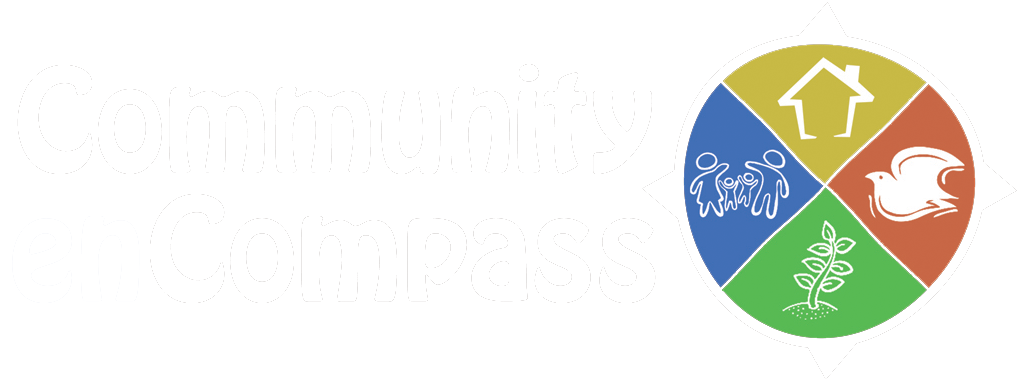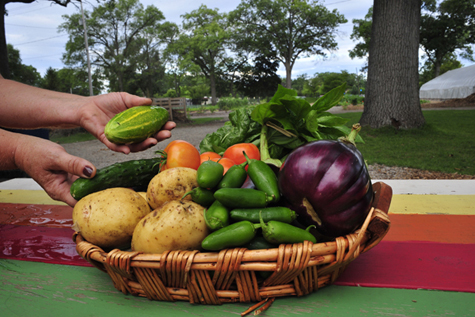Rising Food Insecurity
Imagine your income doesn’t cover the costs of living (i.e. housing, child care, health care, technology, transportation, and food). You’re looking for your cheapest, closest meal options.
Imagine you work two jobs. You don’t have a lot of time to purchase fresh food and prepare meals.
Imagine you rely solely on convenience stores for groceries for you and your family.
Imagine financial stress and long work hours impact your mental health. Your instinct tells you to find comfort where you can. Pre-packaged snack foods provide temporary relief with their high sugar and fat content. Long term, they erode your health.
Imagine this way of life permeates your community and gradually increases rates of chronic, diet-related disease among your family and neighbors.
The number of people here in Muskegon with unreliable access to healthy food--often called food insecurity--was decreasing in the years leading up to the novel coronavirus. In 2018, Feeding America, a national nonprofit, conducted a study that showed 14.1% of people in Muskegon County were food insecure, down from 14.8% in 2016. As the economic impact of the novel coronavirus continues to play out, Feeding America projects that number could jump to 19.5% in 2020.
From Feeding America’s annual “Map the Meal Gap” Study
New neighbors are facing food insecurity, and some for the very first time. As a community development organization, before jumping into problem-solving mode, Community enCompass must always ask: Who owns the solutions?
Consuming Convenience
Imagine you are secure. People are in need and you want to help. Life is busy, though, and your attention is already spread thin.
Imagine you’ve accepted certain stigmas about those facing poverty. Along with those stigmas, you’ve also accepted certain solutions to hunger or poverty.
Imagine you’re intimidated by getting to know new people.
Imagine your help must be given as quickly and conveniently as buying a bag of chips from the corner store.
Imagine this way of life permeates your community. The commitment to convenient solutions builds from one generation to the next. It feels good to be a part of solutions. A quick donation satisfies the urge to help, like a rush of sugar. You can move on to the next thing that requires attention.
Convenient solutions strip those in need of their power to choose. They are a wall between surviving and thriving, built hastily by the well-intentioned. What can we do to slow our quick reach for convenience and restore power of choice to neighbors?
As individuals and organizations, we can build an awareness of the language we are using. We can begin deconstructing the meaning behind certain words or phrases we associate with issues for which we’d like to be advocates. Does the language we use prevent us from building relationships with those impacted by injustices and solutions? Does the language we use rob or restore our neighbors of their right to choose? Does it point us toward convenient solutions? Or does it invite us to come alongside our neighbors as champions of their power to choose?
LaDonna Sanders-Redmond
Here’s activist LaDonna Sanders-Redmond with a story relating to the phrase “food desert”--how it implies communities are desolate, not just of food, but of their power to generate and facilitate solutions:
“I wanted to build a grocery store in my neighborhood--that’s what my neighborhood wanted and we had been working for it. And I had a funder tell me...I think he thought it was the most ridiculous idea ever… he said, ‘Why do you want to build a grocery store? I mean, it just makes no sense… there are other people who know how to do it. So, it’s like you want to go to the moon--why would you build a rocket ship? Why don’t you go to NASA?’ And I was like, ‘It’s so amazing that you would liken going to the grocery store with going to the moon. Because that’s what it is, but it shouldn’t be! It shouldn’t be like going to the moon. It should be as easy and as effortless as everybody else’s visit to the grocery store. It should be a no-brainer. But it’s not. It should not be rocket science to get food. But that’s the mentality that people have when they look at these communities and say, ‘You don’t have the right to choose. You don’t have the right to create.’ That is what the ‘food desert’ phrase implies: You don’t have the right to pick your food system. You don’t have the right to participate in that choice.”
Break the Cycle: Trust Your Neighbors
No program here at Community enCompass is without its faults, but we’re not working towards perfection. We’re working towards strong neighborhoods. Strong neighborhoods made up of neighbors who are CERTAIN of their power to choose--who imagine tailor-made solutions with this certainty, and who teach and lead with this certainty.
Imagine equal access to information, resources, tools, and property. Your neighbors express the need for a local cooperative grocery store. You know about the project and the people involved. You help make it happen.
Imagine equal access to healthy food options. There’s a community garden a block from your house. You volunteer there in the summer and deliver fresh produce to neighbors. Rates of chronic, diet-related disease decrease in your area.
Imagine equal access to respite: the space to breathe and enjoy the company of your neighbor over a plate of local flavors. Feelings of isolation are harder to come by. You trust your neighbors. You support one another.
Imagine this way of life permeating your community. The generations to come are rooted in the work you and your neighbors began, and are fortified by a sense of connected-ness, generosity, and gratitude.
We do.
Author: Chelsea Tanis





